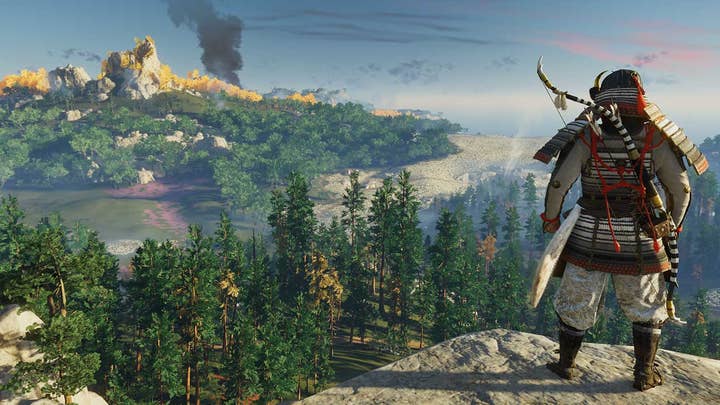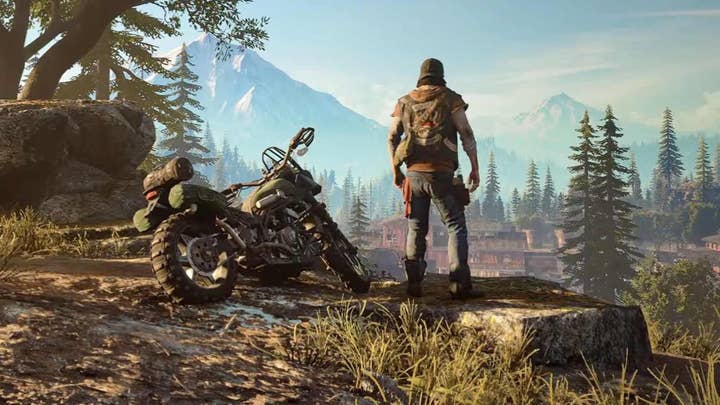Unit sales are only one factor in the sequel equation | Opinion
Decision-making over franchises can seem obscure, but there's usually solid logic behind such investment -- and sales are only part of the puzzle
A fairly common source of frustration, not only among game consumers but also for many people within the industry, is the perceived illogicality of decisions made by publishers and platform holders about how to treat certain IPs.
Whether to fund sequels, create a broader franchise, or abandon a game after a single outing can sometimes seem like a decision that's somewhat random and capricious. Throw into the mix the occasional public complaint from a developer or producer who feels aggrieved at the process, and you end up with a situation where the whole process by which publishers evaluate commercial performance and IP value can seem obscure, unfair and even conspiratorial to the outside observer.
It's worth taking a moment, therefore, to discuss some of the misconceptions about how games' commercial performance is assessed, and how this process actually works, for the most part; though it differs from publisher to publisher, there are commonalities around the industry about the way this evaluation and decision-making process works.
What constitutes a 'unit sale' is much more complex than it ever used to be
Perhaps obviously, the decision to talk about this topic stems from the revived confusion about why Sony seemingly chose not to move forward with a sequel to its PS4 title Days Gone, despite the game -- allegedly -- having comparable or even better unit sales to another late-PS4 era title, Ghost of Tsushima, for which Sony has enthusiastically greenlit a PS5 re-release, a sequel, and a movie adaptation. I don't want to engage with the specifics around Days Gone too much, but it's a useful example of some of the decision-making processes publishers use that can look counter-intuitive to the outside observer who doesn't have access to the full set of data.
Our starting point should be unit sales, since that's the basis for the latest set of raised eyebrows about Days Gone and Ghost of Tsushima -- largely driven by the latter title marking its eight million sales milestone. The fact that unit sales are not the sole basis for publishers' evaluation of games' performance is arguably an incredibly obvious point, but some of the reasoning behind that may be slightly less obvious.
For starters, we should note that the number of units a game needs to shift to call it a success can differ wildly between projects, as there's a very different level of investment across different titles. That's true not only in terms of development and marketing costs, or the costs of licensing certain IP to create a game, but also in terms of less tangible but nonetheless important costs like the opportunity cost of tying up a given IP and/or studio in a given project. In other words, given the resources that were used to create a game (the IP, the talented developers, the budget, etc.), could a better return on investment have been made by devoting those resources to something else instead?
Considerations like this are why a game's sales relative to its projected performance is a more important metric for a publisher than its raw unit sales number -- so shifting a million units for a game that didn't require many resources or use any expensive IP could be a huge success, while five million sales for an expensively produced and marketed AAA title could be a miserable failure. Of course, this sometimes creates anomalous or outright daft-looking results, like Square Enix' much-derided public disappointment at Tomb Raider's failure to hit an eye-watering six million sales target in its launch month back in 2013 -- but even if publishers' internal equations and projections sometimes throw up unrealistic or silly targets, this system normally works in a sensible way and a game's performance relative to target is rightly considered more important than its raw performance.

This is complicated further by the fact that the whole question of what constitutes a 'unit sale' is much more complex than it used to be. Not only are games routinely discounted heavily if they underperform at launch, they can also now appear on services like PlayStation Plus or Xbox Game Pass, allowing people who might never have bought the game at any price point to download it and check it out from simple curiosity.
Unit sales of a game consider full-price sales and steeply discounted sales as equivalent, and many publishers also choose to treat consumers engaging with the game through a subscription service as a 'unit sale,' either at the point of download or after a certain amount of playtime. In fact, there's no truly consistent standard across the industry for deciding what qualifies as a unit sale, which is not a problem unique to games -- Netflix famously changed its metrics to count anyone who had watched a mere two minutes of a movie or TV show as a "view" back in 2019, before settling on reporting hours viewed rather than unique viewers late last year.
A publisher will be looking for whatever grounds it can find to greenlight a sequel or spawn a franchise, not the contrary
The point here is that two games with very similar sales numbers -- like Days Gone and Ghost of Tsushima, allegedly -- could have dramatically different actual revenue and player engagement numbers, especially if those games have had very different post-launch histories in terms of price discounting or availability on a subscription service.
This is the most straightforward commercial logic behind why a game that has sold millions of copies might not be considered viable as a franchise or deserving of a sequel -- that despite its unit sales numbers, it simply might not have been much of a commercial success. There might have been too much investment up-front for even large unit sales numbers to deliver a decent return; the unit sales themselves may have generated far less actual revenue than hoped for; or some combination of those factors may have simply made the game into a commercial failure despite being played by millions of people.
However, that's not the whole story. Underlying this kind of discussion about games failing to get the franchise treatment we often find the belief that the publisher turned against its own game because critics and reviewers didn't like it much; the implication being that a low Metacritic score doomed a burgeoning franchise despite its millions of sales.
The idea that a publisher would drop tens of millions of dollars on developing a major AAA game, launch it to major commercial success, and then give up on a prospective franchise because a bunch of game reviewers didn't give it great scores is, of course, ridiculous -- starting right from the notion that publishers have that much respect for the opinions of game reviewers to begin with. It's also easily disproven simply by looking at the continuing production and success of many franchises, across many mediums, that reviewers absolutely loathe but which consistently make enough money to justify further investment (I'm looking at you, Michael Bay's entire career).

This is a tempting falsehood precisely because there is a nugget of truth at its core. Publishers do look at Metacritic scores in their decision-making about the future of a franchise, but not in isolation -- rather, those scores are a single data point in a broader approach which they take to trying to figure out not just how many consumers bought a game, but whether they actually thought it was a good game once they played it. For all that they attract criticism, especially when they depart from certain strands of core gamer conventional wisdom, review scores are generally at least somewhat indicative of how the broader public feels about a game, making them a useful data point.
Far more important, however, are publishers' various ways of measuring word of mouth and online buzz around a game post-launch, and arguably most important of all is the feedback received from the game itself, which allows publishers to see how many hours players spent in the game, how far they progressed, and so on.
All this information is vital to contextualising a game's commercial performance, because even a game with fantastic unit sales may have been a huge disappointment to players who bought it based on its pre-release hype or the strength of its IP. That can create instances where despite strong sales for the first game, there's little or no appetite for a sequel. This can work the other way around as well; a game which didn't do great numbers on release and ultimately became a sleeper hit via heavy discounting or a subscription service might have seriously enthralled the audiences it eventually found, meaning that despite weak initial sales and revenue it's actually got a strong built-in audience for a potential sequel.
This isn't a fully scientific process, especially when it veers away from simple commercial calculations and into the realms of trying to figure out how consumers actually felt about a game. Internal politics can get involved too, and in some instances publishers have to go with their gut in some regards -- but one fact remains true across all of these decision making processes, which is that every publisher is keen to see its original IP succeed as much as possible.
A publisher will be looking for whatever grounds it can find to greenlight a sequel or spawn a franchise, not the contrary -- and that goes double for a platform holder like Sony with an insatiable appetite for prestige exclusive franchises. When the decision comes down against a sequel or other continuation despite apparently strong unit sales, it's important to think about what other factors may have weighed in that decision; after all, while publishers don't always make the right choices for their IP, the error is almost always on the side of over-milking a tired franchise, not ignoring one that still has major commercial potential and an enthusiastic fanbase.









